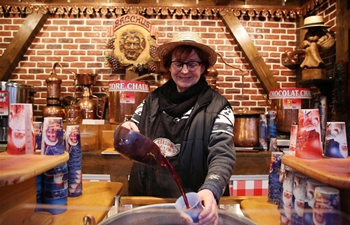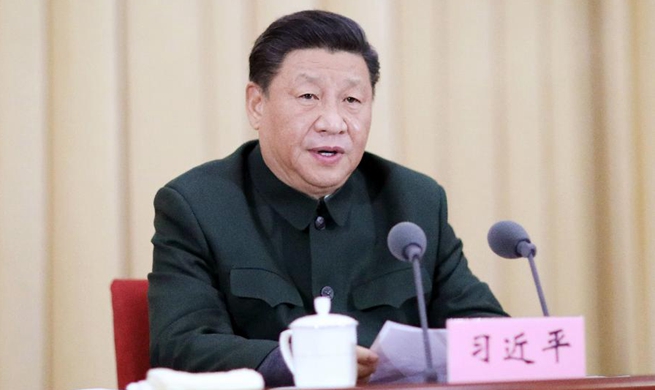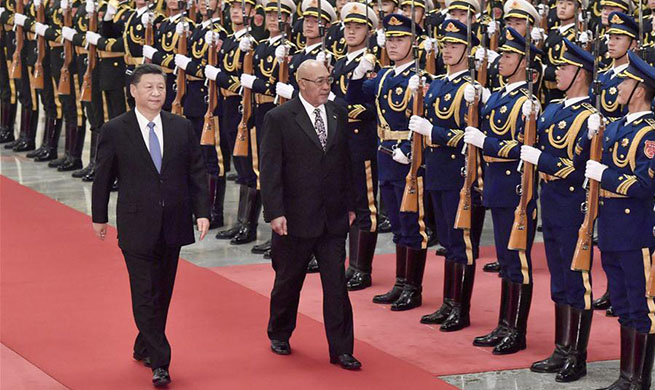by Ndalimpinga Iita
Windhoek, Nov. 27 (Xinhua) -- The 2019 presidential and national assembly elections have accorded the Namibian elderly and senior citizens to embrace the transitions and prospects of the electoral process.
At Khorixas in the Kunene Region, Namibia, 61-year-old Ben Goagoseb cast his vote through the electronic voting machine.
He joins the 1.3 million registered voters in casting his vote during the 2019 independence presidential and national assembly elections on November 27. The 4,241 polling stations opened at 7 a.m. local time and will be closed at 9 p.m.
For Goagoseb, participation in the 2019 elections, is a contrast of the dynamics of elections held in 1989, which heralded the country's independence in March 1990.
By the pensioner's observation, then, the process was done manually, but now we are using electronic voting machines.
"The atmosphere around the 2019 presidential and national assembly elections is completely different from the climate during the pre-independence elections. Also, in 1989, I voted in fear. This time, like other elections after independence, I am calm, and I understand this is my democratic right to vote," said Goagoseb on Wednesday.
Today, as other citizens, the political will and participation of the elderly in the presidential and national assembly elections are driven by the desire for social and economic transformation.
Statistics by the Electoral Commission of Namibia (ECN) shows that of the 1.3 million registered voters, a total of 5846 registered voters were born before the year 1925, 55,699 (born between 1925-1944) while 192,877 were born between 1945 and 1964.
For 80 year-old Agatus Timoteous from a far-flung village in the Oshana Region, voting is about exercising one's human right in shaping the politics and leadership of the country.
"This is a demonstration of practical democracy. My vote is not only my own, but through voting, I am also accorded the opportunity to influence and shape the future of my children and generations to come through command respect and maturity," he said in a telephone interview.
According to Timotues, he is also motivated to vote because this year, for the first time elections will be contested by an independent candidate as well as a female candidate.
"This is a first in our history, and adds a different dynamism to the political arena and call for fair participation in national affairs without any intimidation," said Timoteus.
Eleven candidates are competing for the country's highest office, according to Theo Mujoro, the chief electoral officer of ECN.
Meanwhile, in the Kavango East region, Aletta Haingura, aged 70, said that she is hopeful that her vote will translate into a transformed society.
Moreover, having participated in all the elections held over the years, she said that the transition from the manual ballot paper process is commendable.
"The electronic voting machines are easier to use, and they guarantee confidentially. I am not literate. As such, in the past, I relied on assisted voting to cast my vote. But the new machines now include easily recognizable photos; and by the press of green and then red button, and a beep sound I know I have voted," Haingura said.
Haingura hopes that the candidate that emerges victorious would help improve socio-economic conditions.
"We have challenges in our community, such as the affordability of basic needs. I get a pension, but I also look after many grandchildren. While I am grateful, my wish is for things to improve. I am voting for better living conditions," she concluded.













